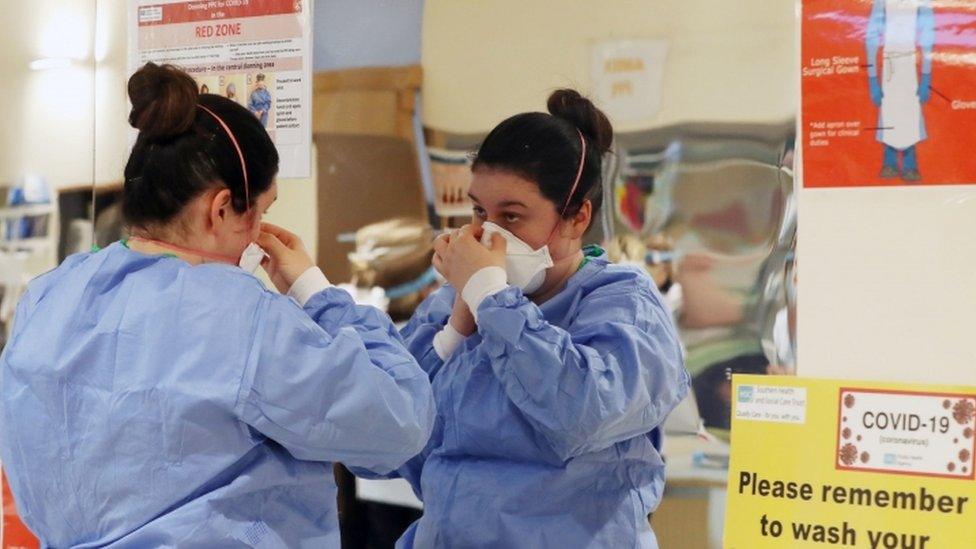Coronavirus: Carál Ní Chuilín tests negative but will self-isolate
- Published
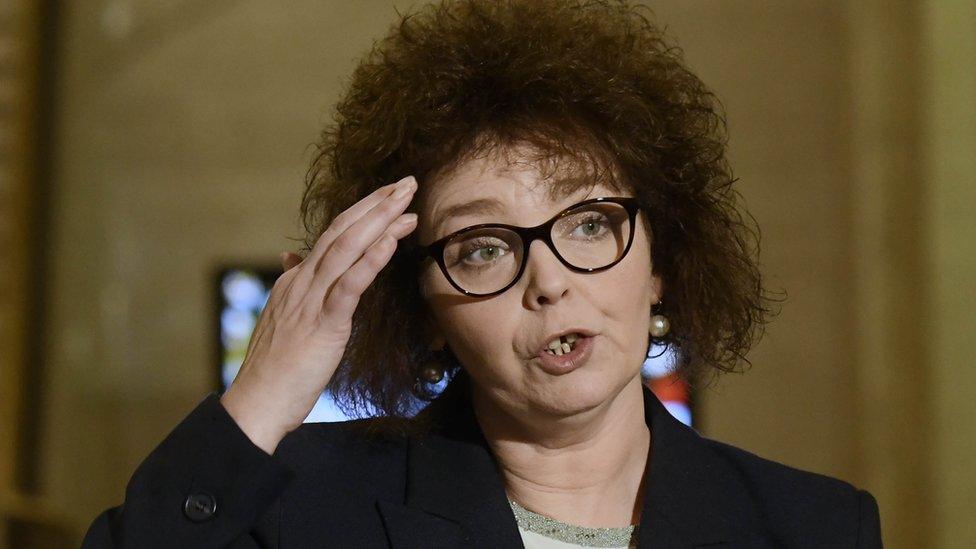
Carál Ní Chuilín has announced she is self-isolating after a family member tested positive
Communities Minister Carál Ní Chuilín has said she has tested negative for Covid-19 but will self-isolate after several family members tested positive.
Earlier on Sunday, the minister said she had told the speaker of the NI Assembly that she would work remotely.
Deputy First Minister Michelle O'Neill is also self-isolating after a relative tested positive for Covid-19.
It comes as 1,066 new cases were reported by the Department of Health, with one further death.
This is Northern Ireland's second highest daily number of reported cases, after 1,080 positive cases were recorded on Friday.
There are now 137 inpatients with Covid-19 in Northern Ireland's hospitals, 19 of whom are in intensive care.
The latest figures show 5,909 people have tested positive over the last seven days.
Sunday's figures for the Republic of Ireland reported 814 new cases in the past 24 hours, with two Covid-19 related deaths.
It brings the total number of coronavirus cases in the Republic to 42,528, with a death toll of 1,826.
'Alarming rise'
Ministers and health officials have spent the day discussing what to do about the rapidly increasing rates of coronavirus.
On Monday morning the first and deputy first ministers, as well as the health minister, will take part in a meeting of the emergency Cobra committee along with the prime minister and other ministers.
An executive spokesperson said given the current rise in infection rates officials are putting in place plans to bring forward Thursday's scheduled meeting.
Sinn Féin vice-president Ms O'Neill said she "will continue to self-isolate" after testing negative for Covid.
In a tweet on Sunday evening, Ms Ní Chuilín said she was "isolating and working away".
Allow X content?
This article contains content provided by X. We ask for your permission before anything is loaded, as they may be using cookies and other technologies. You may want to read X’s cookie policy, external and privacy policy, external before accepting. To view this content choose ‘accept and continue’.

It came after she had tweeted earlier she had advised the assembly's speaker that she will be "working from home and fulfilling my responsibilities".
Responding on social media, her party colleagues extended their best wishes to her.
Ms O'Neill wrote that she sent her "very best wishes to Carál and her family at this challenging time".
"Carál has done tremendous work in supporting communities and vulnerable citizens and will continue to do so remotely," she wrote.
'Exceptionally high'
Speaking to BBC News NI, Prof Sam McConkey, the head of the Department of International Health and Tropical Medicine at the Royal College of Surgeons in Ireland, said Northern Ireland's case numbers were "exceptionally high".
"They are among the highest in the UK, and also much higher than most areas of the Republic of Ireland," he said.
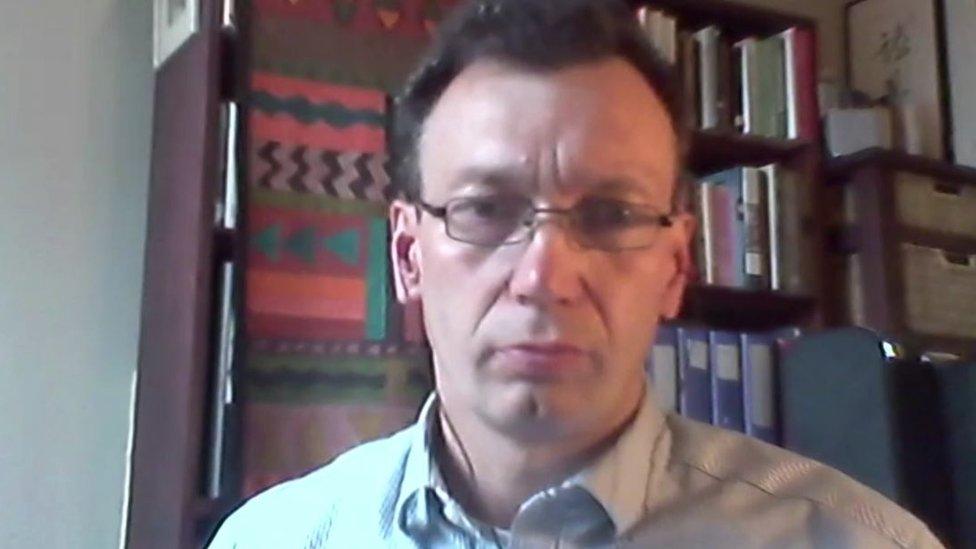
Prof Sam McConkey has said the rise in Covid-19 cases requires a coordinated response
"My view is that this deterioration in the last three or four days - which is not just a single day's numbers, it is consistent over several days - really requires a coordinated action of the leaders.
"Not just the political leaders, but local government leaders and society leaders in Northern Ireland to work together to take action to stop this and to address this."
'Focusing minds'
South Down MP Chris Hazzard said the "alarming the rise of infections" was "focusing minds" of ministers around the executive table.
He said he believed the issue of lockdowns would be examined by the Northern Ireland Executive on Monday and said collective action was needed this week.
"I think there was a logic and a sense to local lockdowns at a time but I think we are now moving into an area where we need to be looking at a more general lockdown once again," he said.
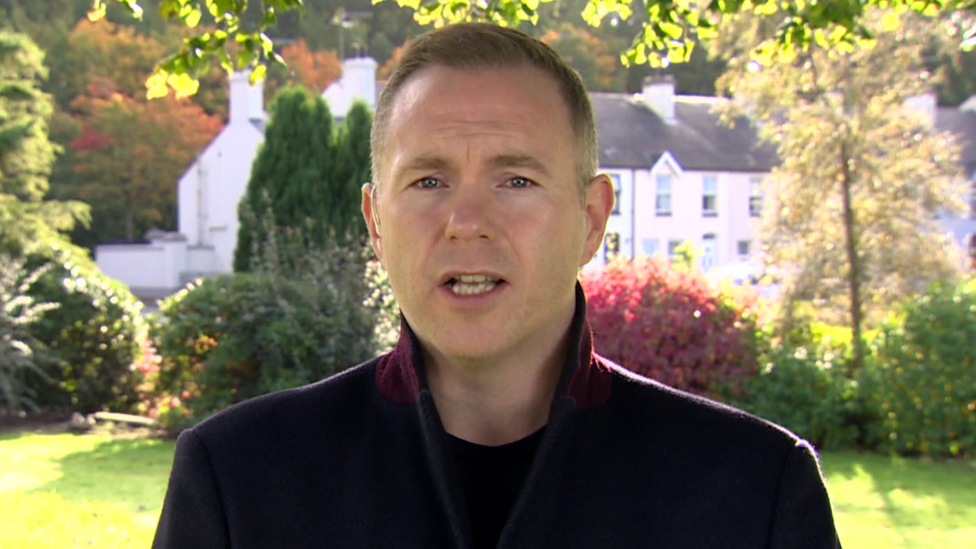
The executive will discuss lockdown measures on Monday, Chris Hazzard has said
"More general rigorous and robust methods of being able to suppress this virus."
Mr Hazzard told BBC Northern Ireland's Sunday Politics programme that health must come first.
"There is no strong economy without strong public health," he said.
The Republic's European Affairs Minister Thomas Byrne said a circuit breaker was "clearly under consideration" by the Irish government.
Speaking on the same programme, he said closer alignment was needed between Northern Ireland and the Republic of Ireland regarding this discussion.
Mr Byrne said Taoiseach Michéal Martin was working closely with First Minister Arlene Foster, Deputy First Minister Michelle O'Neill and Prime Minister Boris Johnson.
"I think you will find that intensifying even further over the next few days," he said.
"I think that is really important because we are in a public health crisis.
"NI is ahead of the Republic of Ireland at the moment but clearly our trajectory of numbers isn't fantastic either.
"This island should be treated as one single epidemiological unit at the moment, our public health issues are so far more important than any other considerations."
Mr Byrne said Ireland's advice around essential travel was clear: "If you are in Dundalk we don't want you going to Castleblaney and we don't want you going to Newry and obviously the advice holds each way.
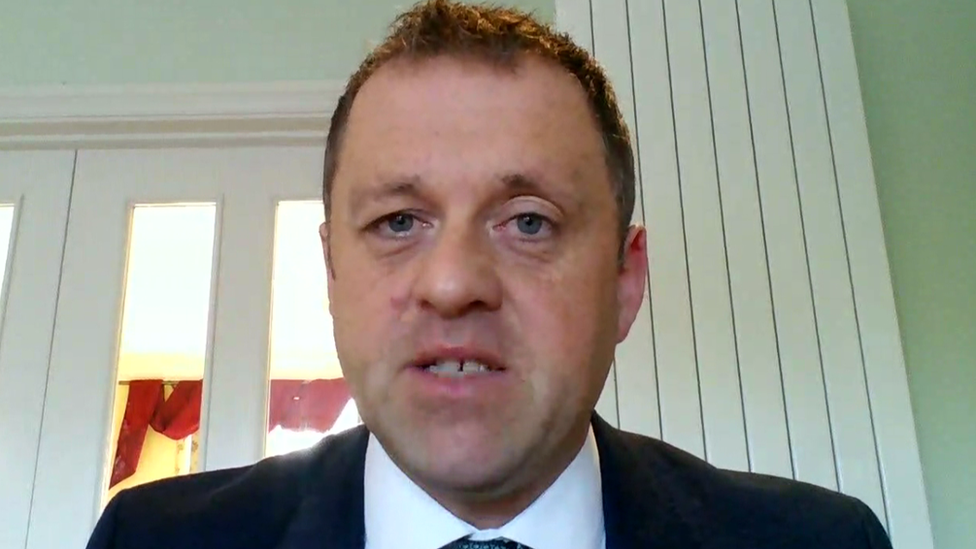
The Republic's European Affairs Minister Thomas Byrne has called for a more all-island approach
"If you are in Donegal don't go into Derry but don't go into Leitrim either."
QUB virologist Dr Lindsay Broadbent said the "huge jump" in Covid-19 hospital admissions in the past week meant it was "time to do something".
"That is what is really worrying. We can keep an eye on the case numbers, that is one part of this," she told BBC Radio Ulster's Sunday with Steven Rainey programme.
"The most important thing we have to keep an eye on is how many people are in hospital.
"The hospital admissions are what follow that increase in deaths, and that is really what we are trying to prevent."
- Published10 October 2020
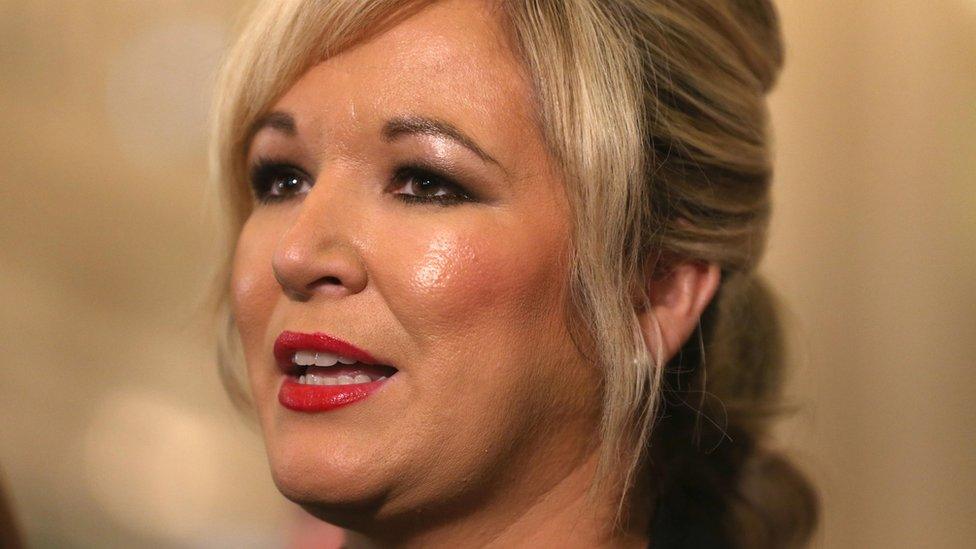
- Published10 October 2020
